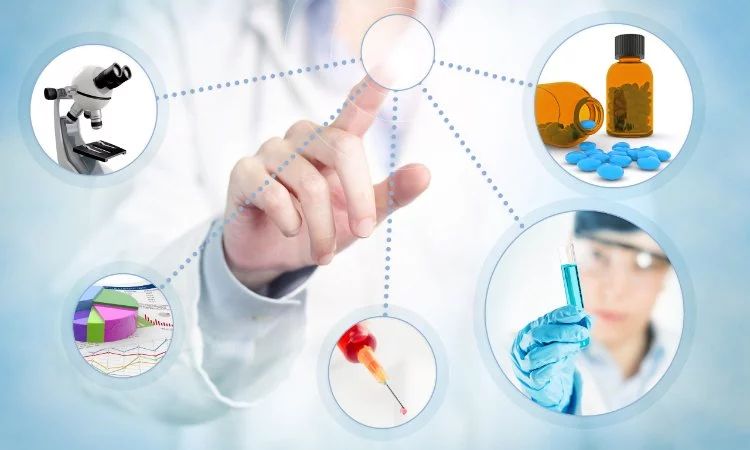New drugs undergo years of intensive research, testing, and improvements before they are administered to a patient. Clinical pharmacology and therapeutics play paramount roles therein. These sciences help in the process of understanding how drugs act in the human body and how to make them safer and more effective. More and more teams also use modeling and simulations services to expedite the scientific process and improve decision-making at an early stage. The tools thereby predict the drug behavior in real persons even before clinical trials can be completed.
Understanding Drug Mechanisms
Clinical pharmacology aims at understanding what a drug, once inside a human body, does. It studies each key step: how the drug gets into the body, how it flows through the cardiovascular system, how it is metabolized by the body, and how it is eliminated. The right dose, how many times the drug should be taken, and which people it helps most are all dependent on these steps. This, in turn, averts side effects and makes the drug most useful for the patient.
Using Real Data for Smart Decision Making
Therapeutics deals with the outcomes of treatment. It studies how patients react to medications and which treatments best suit certain conditions. When researchers combine the results gained from clinical trials with the results that arise in the real world, it helps modify how a drug is to be used. This way, physicians can provide more personalized and more precise treatment to their patients.
Why Modeling and Simulation Matter
Over the past decade or so, modeling and simulation services have grown ever more valuable to drug development. With these services, various ideas can be tested on a computer before actually subjecting humans to them. By building virtual models of bodily responses to certain drugs, scientists can speculate on the safest and most efficacious way of utilizing a particular drug. It saves time and money and possibly stops potential errors from occurring in earlier clinical trials.
Assisting in Speeding Up the Drug Development
Traditional drug development is extremely time-consuming and expensive, usually, over a decade and costing a billion, if not more. Clinical pharmacology assists by speeding up the process, identifying problems earlier, and rectifying them faster. It allows teams to focus on the most promising drug candidates and move away from options that are less likely to work.
Supporting Personalized Medicine
A drug trials are not equally effective on all individuals. Age, weight, genetics, and other present health conditions are examples. Clinical pharmacology is an area of study that enables investigators to know these variations so that the treatment can be individualized for the patient. This is a big step toward personalized medicine, where people get the right treatment at the right time.
Conclusion
Clinical pharmacology and therapeutics are leading the way in developing new drugs. Modeling and simulation services make it possible for researchers to move fast and operate smartly and scientifically along the dimension of each issue. Understanding the pharmacodynamics and pharmacokinetics of a drug, and adjusting them to variability in populations, makes the whole system safer, rational, and much more efficient in drug delivery.

Lexy Summer is a talented writer with a deep passion for the art of language and storytelling. With a background in editing and content creation, Lexy has honed her skills in crafting clear, engaging, and grammatically flawless writing.



